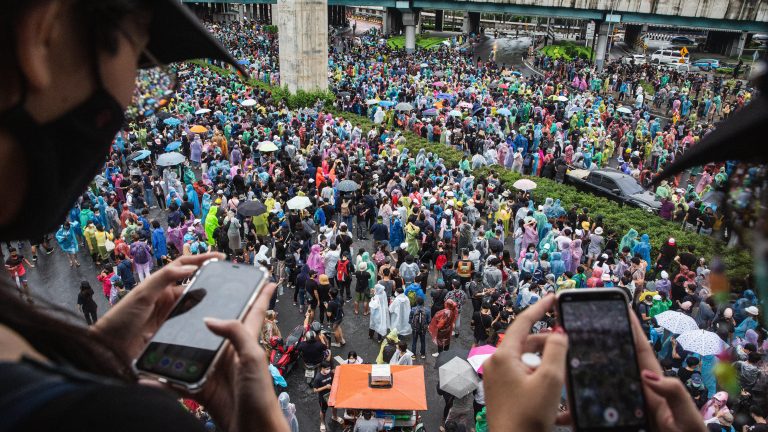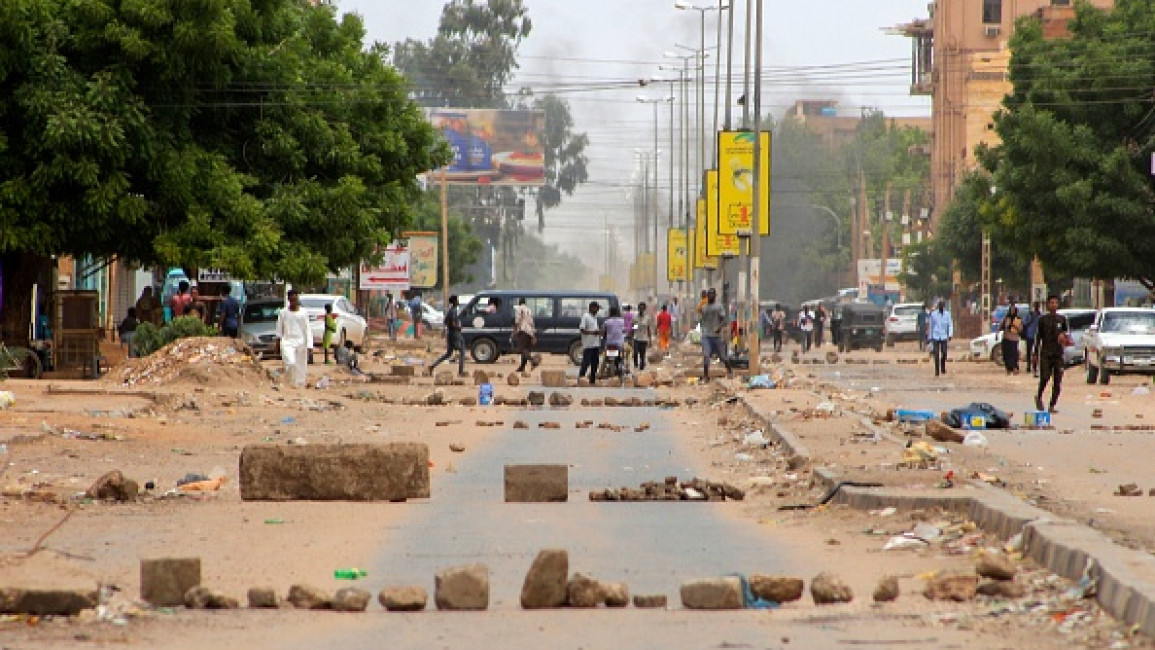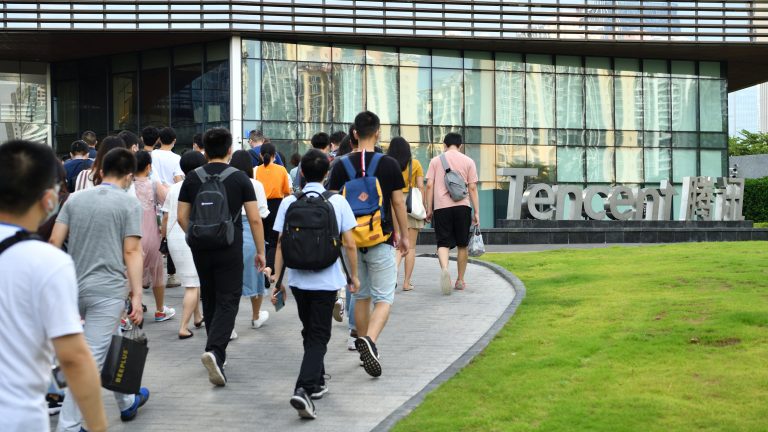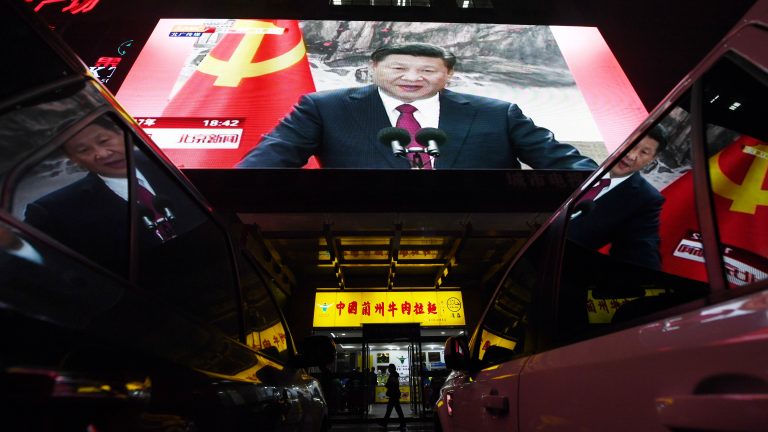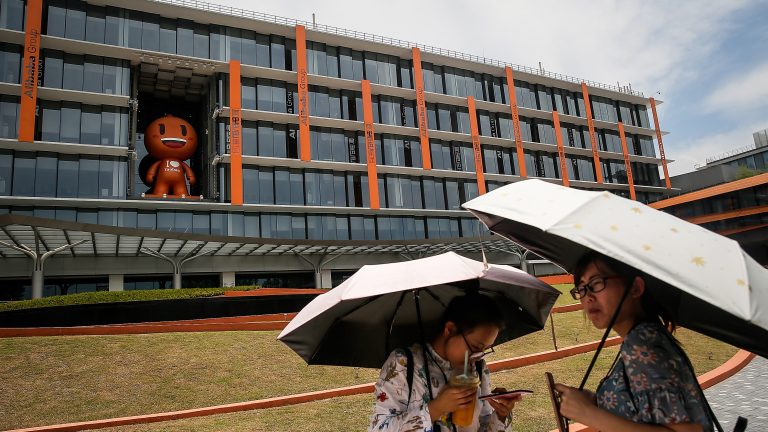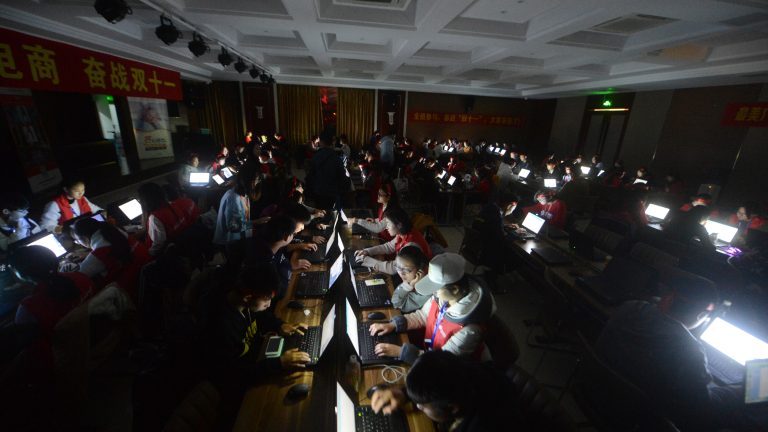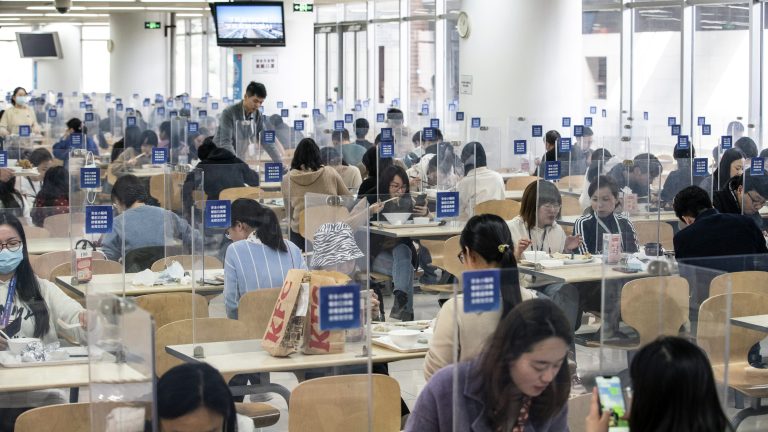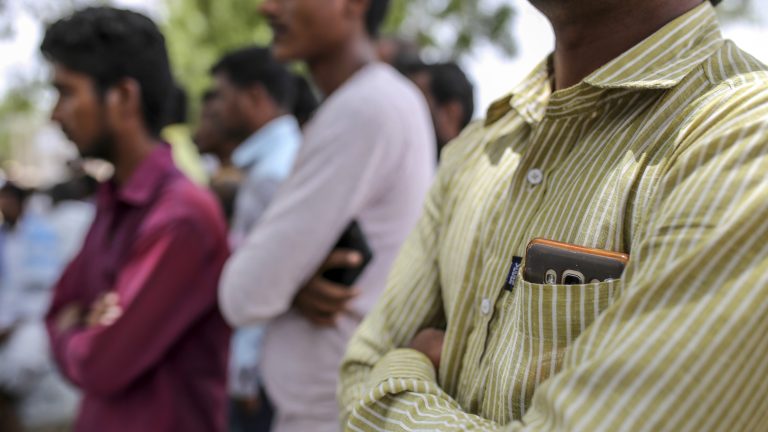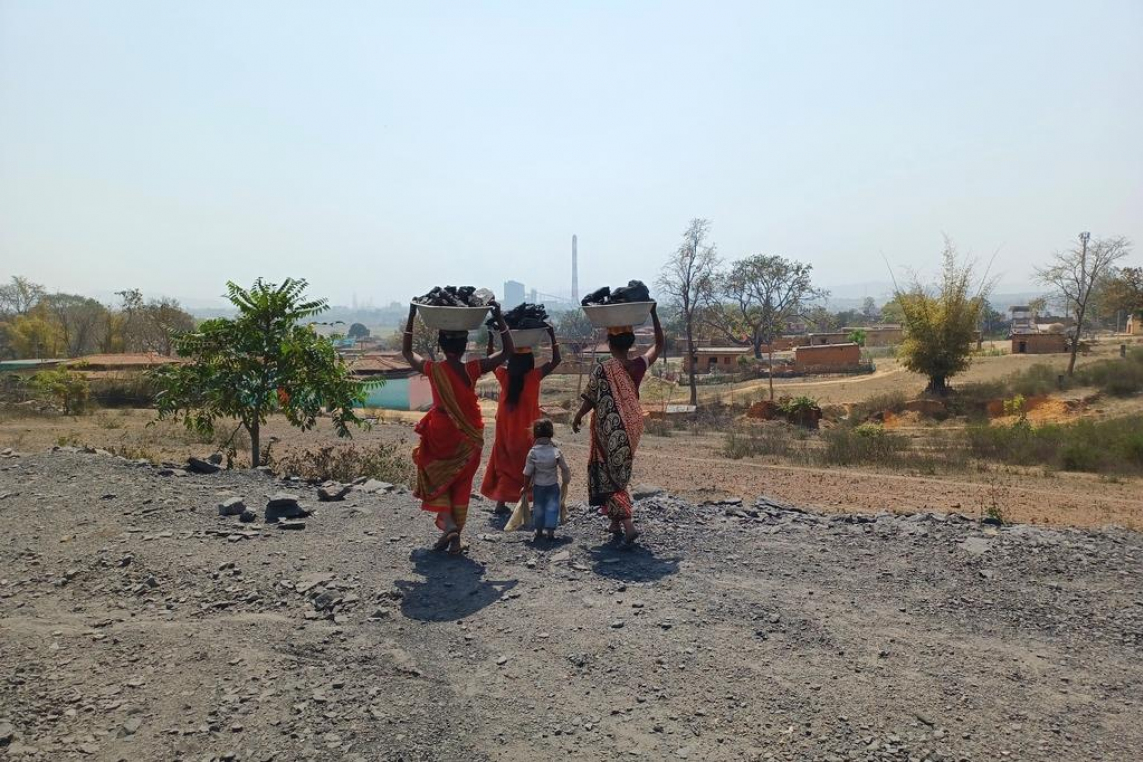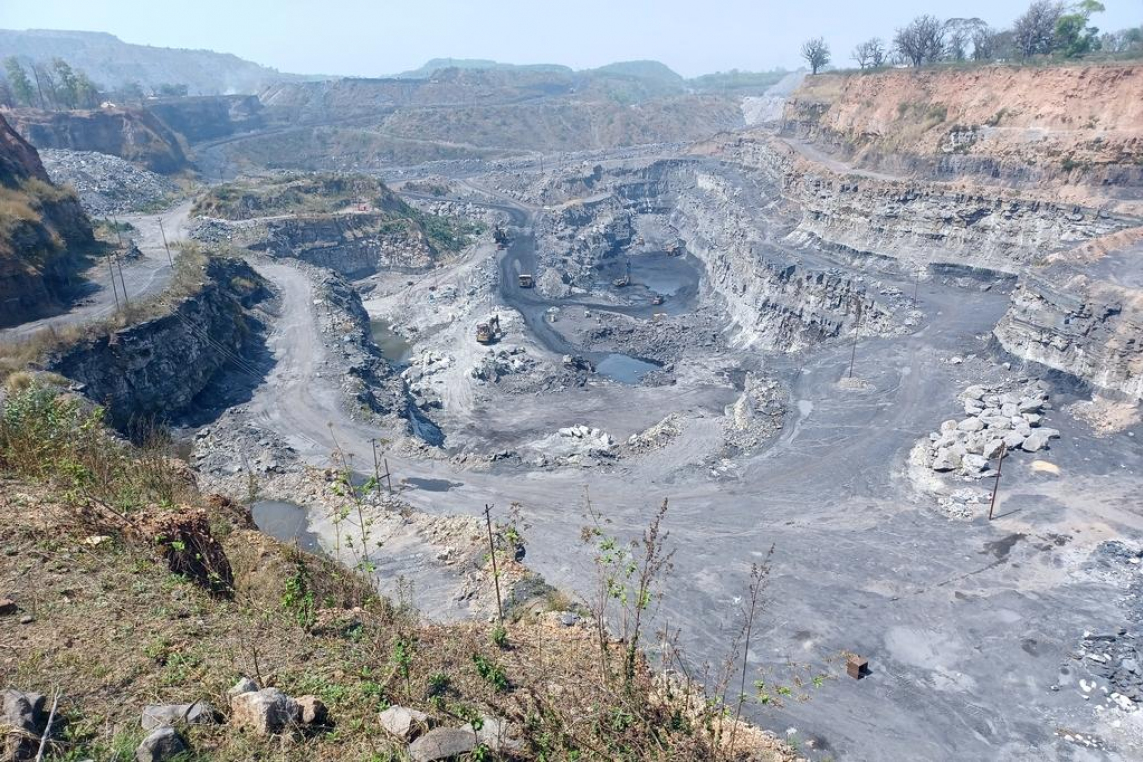Thailand's Prayuth Chan-ocha fights economy, Thaksin's popularity
Ruling coalition frays ahead of no-confidence motion and eventual elections

Ruling coalition frays ahead of no-confidence motion and eventual elections

Thailand's Prime Minister Prayuth Chan-ocha walks past an honour guard in Bangkok in May.
YOHEI MURAMATSU,
YOHEI MURAMATSU,
Nikkei staff writer
July 18, 2022
BANGKOK -- Eager to keep his job once his term expires in March, Thai Prime Minister Prayuth Chan-ocha this month has been trying to quash rumors that he will be replaced due to the country's suffering economy, taking to the internet and visiting his supporters.
But his campaign comes with his ruling coalition on the verge of suffering a defection and on the eve of a no-confidence showdown in the lower house.
"If I can continue [as the leader,]" the prime minister told supporters in a rural part of northern Thailand, "the projects will proceed faster."
It was the first time Prayuth made it clear in public that he intends to remain in office for a second term. Previously statements had expressed an intention to serve a full term.
The following day, Prayuth posted a video of himself on his government's website, pledging to rebuild the economy by building infrastructure and promoting the electric vehicle industry. He promised his measures would start showing results within two years, asking the public to keep supporting him so he can complete long-term programs.
With a lower house election to take place by next May at the latest, Prayuth's recent remarks seem to indicate a determination to continue heading the government beyond that period.
Prayuth has led Thailand since May 2014, when as army chief he pulled a military coup, then remained as junta chief until elections were staged for one house of parliament in March 2019. With the upper house hand-picked by the military and holding great power to put a prime minister in place, Prayuth was able to officially assume the prime ministership under a quasi-civilian government.
In a policy speech in July 2019, when the ruling coalition was formed, the pro-military leader vowed to pull Thailand out of its middle-income trap, one many developing countries fall into when they gain a certain amount of economic strength. Then the pandemic struck.
In 2021, Thailand's economy grew 1.5%, the worst performance among major Southeast Asian nations. It is expected to plug along at a relatively low 3% or so this year.
Prayuth can do little about the biggest drag on Thailand's economy, tourism, which in normal times accounts for more than 10% of the country's gross domestic product. Although Thailand is now allowing international arrivals, a big tourism rebound is unlikely due to the relentlessness of COVID-19 and repercussions, especially those pertaining to energy costs, from Russia's invasion of Ukraine.
But Thailand, whose economic recovery has been slower than those in neighboring countries, has other concerns.
"The population has peaked out, and foreign companies' investment appetite has diminished," said Seiya Sukegawa, a visiting professor at the Thai-Nichi Institute of Technology in Bangkok.
At the household level, Thais keep having to borrow to make ends meet. According to the Bank for International Settlements (BIS), Thailand's household debt in 2021 reached 91% of GDP, up 10.8 percentage points from 2019, before the pandemic, and much worse than the emerging economy average of 51%.
Their harsh economic reality has many Thais yearning for a return of the Shinawatra family. Thaksin Shinawatra, a former prime minister who led the country to high economic growth, is now living in self-imposed exile, having been convicted of abuse of power. His sister Yingluck, another former prime minister, is also a fugitive.
Thaksin has continued to influence Thai politics from abroad, which shows in an opinion poll conducted by the National Institute of Development Administration in June. In the survey, 25% of respondents favored Thaksin daughter Paetongtarn as the next prime minister. Prayuth came in No. 3 at 12%, outdone even by Pita Limjaroenrat, the leader of Move Forward Party, at 13%.
Thailand's opposition parties have filed a no-confidence motion against Prayuth, with parliamentary debate beginning Tuesday. The motion comes with the 19-party ruling coalition beginning to fray. The Thai Economic Party, a medium-size coalition member, on Wednesday stated it will vote for the no-confidence motion.
Even without the Thai Economic Party, the ruling coalition enjoys about a 15-seat majority in the 484-member lower house. But if more defections follow, they could end the Prayuth era.
BANGKOK -- Eager to keep his job once his term expires in March, Thai Prime Minister Prayuth Chan-ocha this month has been trying to quash rumors that he will be replaced due to the country's suffering economy, taking to the internet and visiting his supporters.
But his campaign comes with his ruling coalition on the verge of suffering a defection and on the eve of a no-confidence showdown in the lower house.
"If I can continue [as the leader,]" the prime minister told supporters in a rural part of northern Thailand, "the projects will proceed faster."
It was the first time Prayuth made it clear in public that he intends to remain in office for a second term. Previously statements had expressed an intention to serve a full term.
The following day, Prayuth posted a video of himself on his government's website, pledging to rebuild the economy by building infrastructure and promoting the electric vehicle industry. He promised his measures would start showing results within two years, asking the public to keep supporting him so he can complete long-term programs.
With a lower house election to take place by next May at the latest, Prayuth's recent remarks seem to indicate a determination to continue heading the government beyond that period.
Prayuth has led Thailand since May 2014, when as army chief he pulled a military coup, then remained as junta chief until elections were staged for one house of parliament in March 2019. With the upper house hand-picked by the military and holding great power to put a prime minister in place, Prayuth was able to officially assume the prime ministership under a quasi-civilian government.
In a policy speech in July 2019, when the ruling coalition was formed, the pro-military leader vowed to pull Thailand out of its middle-income trap, one many developing countries fall into when they gain a certain amount of economic strength. Then the pandemic struck.
In 2021, Thailand's economy grew 1.5%, the worst performance among major Southeast Asian nations. It is expected to plug along at a relatively low 3% or so this year.
Prayuth can do little about the biggest drag on Thailand's economy, tourism, which in normal times accounts for more than 10% of the country's gross domestic product. Although Thailand is now allowing international arrivals, a big tourism rebound is unlikely due to the relentlessness of COVID-19 and repercussions, especially those pertaining to energy costs, from Russia's invasion of Ukraine.
But Thailand, whose economic recovery has been slower than those in neighboring countries, has other concerns.
"The population has peaked out, and foreign companies' investment appetite has diminished," said Seiya Sukegawa, a visiting professor at the Thai-Nichi Institute of Technology in Bangkok.
At the household level, Thais keep having to borrow to make ends meet. According to the Bank for International Settlements (BIS), Thailand's household debt in 2021 reached 91% of GDP, up 10.8 percentage points from 2019, before the pandemic, and much worse than the emerging economy average of 51%.
Their harsh economic reality has many Thais yearning for a return of the Shinawatra family. Thaksin Shinawatra, a former prime minister who led the country to high economic growth, is now living in self-imposed exile, having been convicted of abuse of power. His sister Yingluck, another former prime minister, is also a fugitive.
Thaksin has continued to influence Thai politics from abroad, which shows in an opinion poll conducted by the National Institute of Development Administration in June. In the survey, 25% of respondents favored Thaksin daughter Paetongtarn as the next prime minister. Prayuth came in No. 3 at 12%, outdone even by Pita Limjaroenrat, the leader of Move Forward Party, at 13%.
Thailand's opposition parties have filed a no-confidence motion against Prayuth, with parliamentary debate beginning Tuesday. The motion comes with the 19-party ruling coalition beginning to fray. The Thai Economic Party, a medium-size coalition member, on Wednesday stated it will vote for the no-confidence motion.
Even without the Thai Economic Party, the ruling coalition enjoys about a 15-seat majority in the 484-member lower house. But if more defections follow, they could end the Prayuth era.
